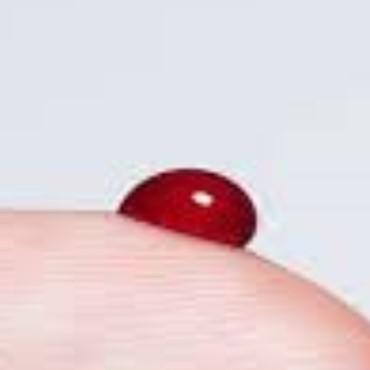Blood is a vital component of our bodies, often called the lifeline that keeps us alive. This crimson fluid serves numerous essential functions for our bodies, including the transportation of nutrients, oxygen, and hormones, as well as waste removal and immune defense. It is a complex mixture of cells, proteins, and other substances crucial for our overall well-being. One of the primary functions of blood is oxygen transportation. Red blood cells, or erythrocytes, contain a protein called hemoglobin, which binds to oxygen and carries it from the lungs to the body's tissues and organs. Without this oxygen supply, cells could not carry out their functions efficiently, leading to various health complications. Additionally, blood carries essential nutrients derived from the food we consume. These nutrients, such as carbohydrates, proteins, fats, vitamins, and minerals, are absorbed by the intestines and transported through the blood to various organs and tissues. The circulatory system ensures that every cell receives the necessary nourishment to maintain its health and vitality. Moreover, blood serves as a conduit for hormones, signaling molecules that regulate numerous bodily functions. Endocrine glands release hormones into the bloodstream, allowing them to reach their target cells and elicit specific responses. For instance, thyroid hormones control metabolism, insulin regulates blood sugar levels, and sex hormones influence reproductive functions. Without this efficient transportation system, our body's signaling processes would be disrupted, hampering organ functions and overall homeostasis. Aside from carrying vital substances, blood also plays a crucial role in waste removal. Metabolic waste, such as carbon dioxide and urea, is transported through the blood to various elimination organs, primarily the lungs and kidneys. Through gas exchange in the lungs, carbon dioxide is expelled from the body, while the kidneys filter waste products from the blood, producing urine. Without this waste removal process, harmful substances would accumulate, leading to toxicity and potentially damaging vital organs. Blood also acts as a defense mechanism against harmful pathogens. White blood cells, or leukocytes, patrol the blood and lymphatic system, identifying and attacking foreign invaders. These cells come in different types, each with specialized functions in immune response. Additionally, blood contains antibodies and proteins that help neutralize harmful bacteria, viruses, and other pathogens. This immune defense system is essential in combating infections and keeping our bodies healthy. Furthermore, blood has the remarkable ability to clot and seal wounds. When blood vessels are damaged, platelets aggregate at the site and release proteins, forming a clot that stops bleeding. This process, known as hemostasis, prevents excessive blood loss and promotes wound healing. In conclusion, blood is a remarkable fluid that performs a multitude of crucial functions in our bodies. It transports oxygen, nutrients, hormones, and waste products, ensuring the proper functioning of organs and tissues. Its immune defense mechanisms protect us from infections, while its ability to clot contributes to wound healing. Without blood, our bodies would be unable to carry out their vital processes, highlighting its significance in maintaining our overall health and well-being.
Record
Recording 00:00
Commenting has been turned off for this post.
Categories
- Home
- Wellness
- Theater
- Sports
- Shopping
- Religion
- Party
- Other
- Networking
- Music
- Literature
- Art
- Health
- Gardening
- Games
- Food
- Fitness
- Film
- Drinks
- Dance
- Crafts
- Causes
Read More
Growing plants
I bought various types of plants and planted them in my balcony. It increased the beauty and got...
The Environment: Challenges and Solutions for a Sustainable Future
The environment, encompassing the air, water, soil, and living organisms, is the foundation of...
Gibbons
Now not all species of this animal is endangered, but some species are.The endangered types of...
Life On Land
Life On Land, as outlined in the United Nations Sustainable Development Goals (SDGs), emphasizes...
Animal Care
Do you know that people who eat meat have protein but they can do harm to our nature ( I am a...
© 2024 GoSharpener Pvt.Ltd.
Refund and Cancellation policy - We do not entertain any refunds and cancellation English
Refund and Cancellation policy - We do not entertain any refunds and cancellation English

